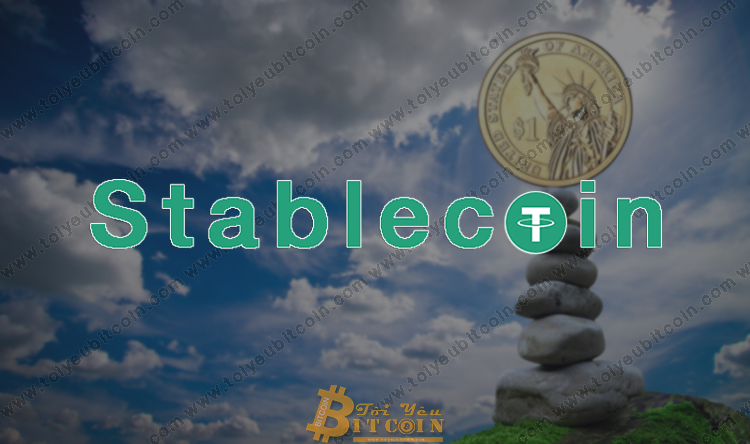Stablecoins – the most controversial topic in the crypto community for the past few months, are continuously the big companies and corporations in the world issuing different stable coins. So what are stablecoins? What kind of stable coins are there? What are the advantages and disadvantages? Let’s find out with I Love Bitcoin in the article below.
What is StableCoin?
Stablecoins (stable coin) is a digital currency developed on the platform Blockchain and has a stable value, the price of a Stable coin is pegged to another stable asset such as gold or fiat currency (USD, EUR, VND). This currency must be global, low volatility and decentralized, ie not controlled by any central bank or organization.
Tether (USDT) is the most popular stablecoin today, most exchanges use USDT as a trading market, in terms of market capitalization, Tether is ranked 9th in the world. CoinMarketCap. But Tether itself has caused a lot of controversy as to whether it is the best stablecoin, as the total supply of this coin has been steadily increasing in recent months and many argue that the market’s decline is time. time is largely due to Tether.
Some essential features of a stablecoin:
- Stable price
- Ability of extension
- High security
- Decentralized
- Sponsored and Rigorously Tested
Currently, there are no coins on the cryptocurrency market that meet the above criteria, but there are quite a few projects under development aiming to achieve these characteristics.
What kind of stable coins are there?
Currently on the market there are 3 types of Stablecoins as follows:
1. Stablecoins – debt assets
It means issuing debt assets guaranteed by a reputable intermediary third party, this intermediary will guarantee to convert 1 Stablecoin to another asset at a fixed rate. For example, Tether is guaranteed by Tether Limited to convert to USD at a ratio of 1:1.
Some typical stablecoins like: Tether, TrueUSD, Stably, Arccy
2. Stablecoins – collateral
Means collateral with another cryptocurrency on the Blockchain. For example, Bitshare’s bit.USD coin – a decentralized exchange, bit.USD is created by having a corresponding amount of BTS coins locked (collateralized).
Some typical stablecoins like: BitShares, Maker, Havven, Sweetbridge, Augmint
3. Stablecoins – no collateral
That is, the currency has a mechanism to regulate supply and demand, the mechanism of action is that when the price falls, it will reduce the supply so that the price increases, vice versa when the price increases, it reduces the supply so that the price goes down.
Some typical stablecoins like: Basecoin, Carbon, Fragments, Kowala
Pros and cons of stablecoins?
1. Advantages of Stable coin
- Price stability when trading
- Support investors and traders to “avoid the storm” when the market drops without having to change to fiat currency (USD, VND, ..)
2. Disadvantages of Stable coin
- Stable coin supply manipulation and crypto market manipulation like Tether
- Users risk not being backed by any assets
- Tends to be centralized rather than decentralized
Epilogue
OK. Here is the information about Stablecoins that I want to share with you. In general, stable coins like USDT are still a very necessary coin in the cryptocurrency market, with a stable value that will help investors not depend on the law and convert to BTC, ETH, XRP,. .fast and reverse at any time.
However, there are still potential risks of decentralization and control by institutions and market manipulation such as Tether, currently, there have been a number of Stablecoin projects launched that fully meet the standards. The required cost of a Stablecoin, you can refer to some news below:
If you feel the article “What are stablecoins? What kind of stable coins are there? What are its pros and cons?“Useful, don’t forget Like, Share and 5 star rating to support Blog I Love Bitcoin Please. Good luck.
Join our channel to update the most useful news and knowledge at:
